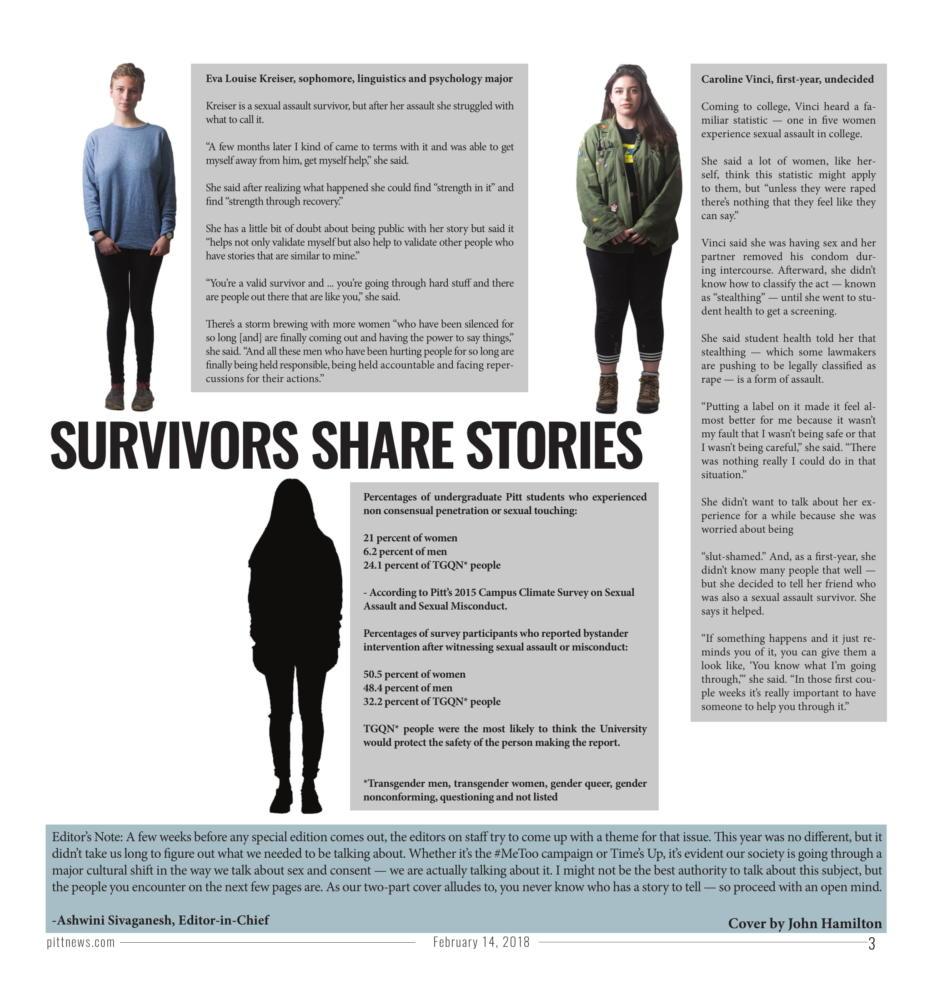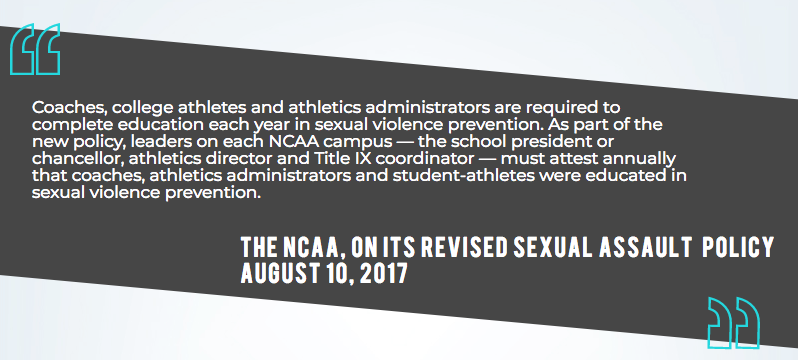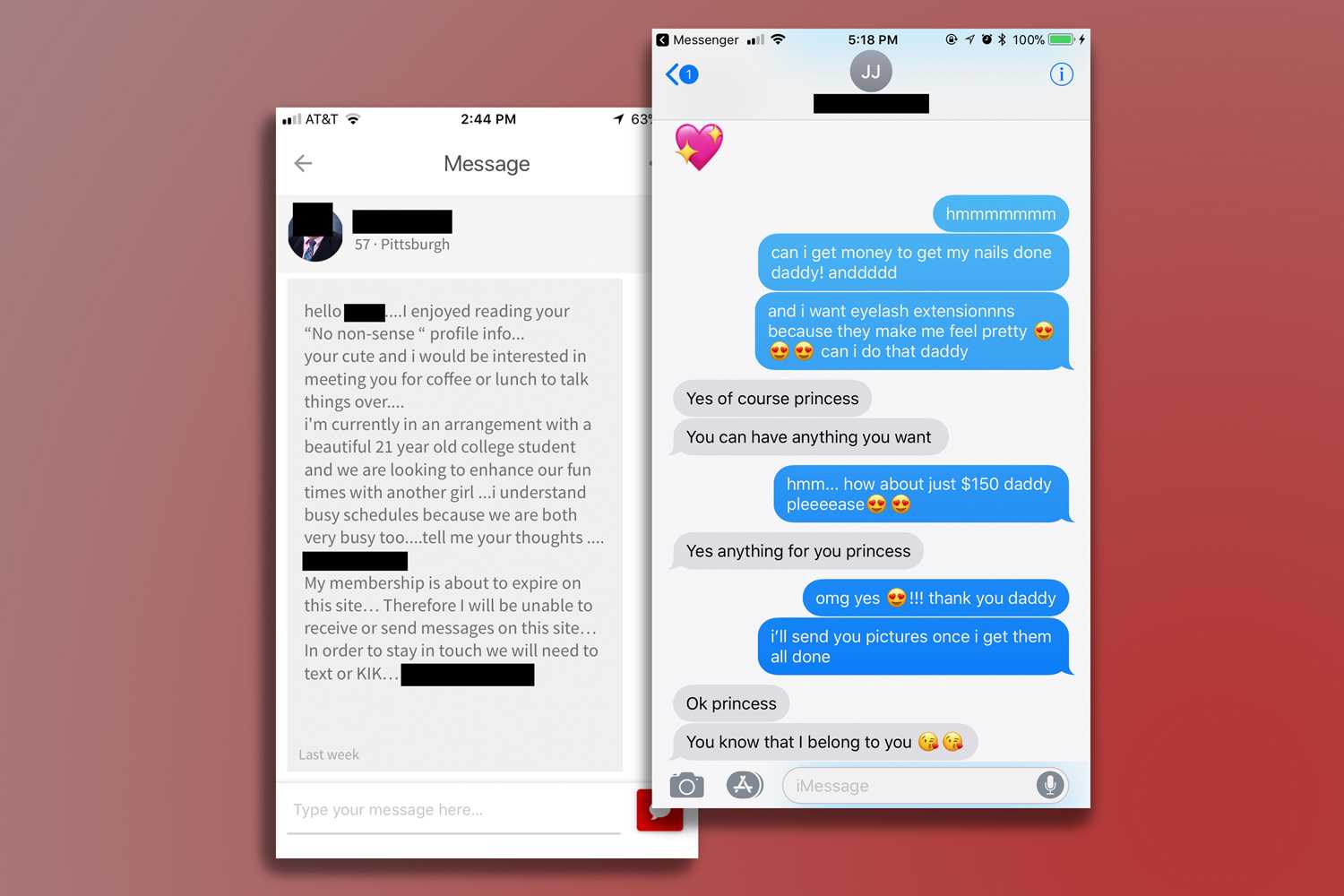Editor’s Note: A few weeks before any special edition comes out, the editors on staff try to come up with a theme for that issue. This year was no different, but it didn’t take us long to figure out what we needed to be talking about. Whether it’s the #MeToo campaign or Time’s Up, it’s evident our society is going through a major cultural shift in the way we talk about sex and consent — we are actually talking about it. I might not be the best authority to talk about this subject, but the people you encounter on the next few pages are. As our two-part cover alludes to, you never know who has a story to tell — so proceed with an open mind.
-Ashwini Sivaganesh, Editor-in-Chief

Eva Louise Kreiser, sophomore, linguistics and psychology major.
Kreiser is a sexual assault survivor, but after her assault she struggled with what to call it.
“A few months later I kind of came to terms with it and was able to get myself away from him, get myself help,” she said.
She said after realizing what happened she could find “strength in it” and find “strength through recovery.”
She has a little bit of doubt about being public with her story but said it “helps not only validate myself but also help to validate other people who have stories that are similar to mine.”
“You’re a valid survivor and … you’re going through hard stuff and there are people out there that are like you,” she said.
There’s a storm brewing with more women “who have been silenced for so long [and] are finally coming out and having the power to say things,” she said. “And all these men who have been hurting people for so long are finally being held responsible, being held accountable and facing repercussions for their actions.”
Caroline Vinci, first-year, undecided
Coming to college, Vinci heard a familiar statistic — one in five women experience sexual assault in college.
She said a lot of women, like herself, think this statistic might apply to them, but “unless they were raped there’s nothing that they feel like they can say.”
Vinci said she was having sex and her partner removed his condom during intercourse. Afterward, she didn’t know how to classify the act — known as “stealthing” — until she went to student health to get a screening.
She said student health told her that stealthing — which some lawmakers are pushing to be legally classified as rape — is a form of assault.
“Putting a label on it made it feel almost better for me because it wasn’t my fault that I wasn’t being safe or that I wasn’t being careful,” she said. “There was nothing really I could do in that situation.”
She didn’t want to talk about her experience for a while because she was worried about being
“slut-shamed.” And, as a first-year, she didn’t know many people that well — but she decided to tell her friend who was also a sexual assault survivor. She says it helped.
“If something happens and it just reminds you of it, you can give them a look like, ‘You know what I’m going through,’” she said. “In those first couple weeks it’s really important to have someone to help you through it.”
Interactive graphic: Sexual assault and college sports

The bittersweet lives of sugar babies

With college tuition, textbook and living costs soaring higher each year, students face daunting debts that prompt them to get creative with how they support themselves. Some turn to working at Starbucks, others to tutoring — and some even turn to dating.
Pitt students condemn catcalling
Lawyers navigate the intricacies of assault

Within the first 24 hours of the #MeToo movement going viral in October 2017, there were more than 12 million posts, comments and reactions made by 4.7 million Facebook users worldwide. The movement has since reached more than 85 countries, shedding a new light on advocacy for survivors of sexual harassment and assault.
But the idea of supporting sexual assault survivors is relatively new. Most jurisdictions in the United States didn’t adopt variations on rape shield statutes — laws designed to protect victims of sex crimes during criminal proceedings — until the late 1970s.
Seeking out safe sex in the LGBTQ+ community

The average human being can only be so comfortable with openly discussing how to insert an internal condom, which is why organizations like the Rainbow Alliance come prepared with a prosthetic vagina.



